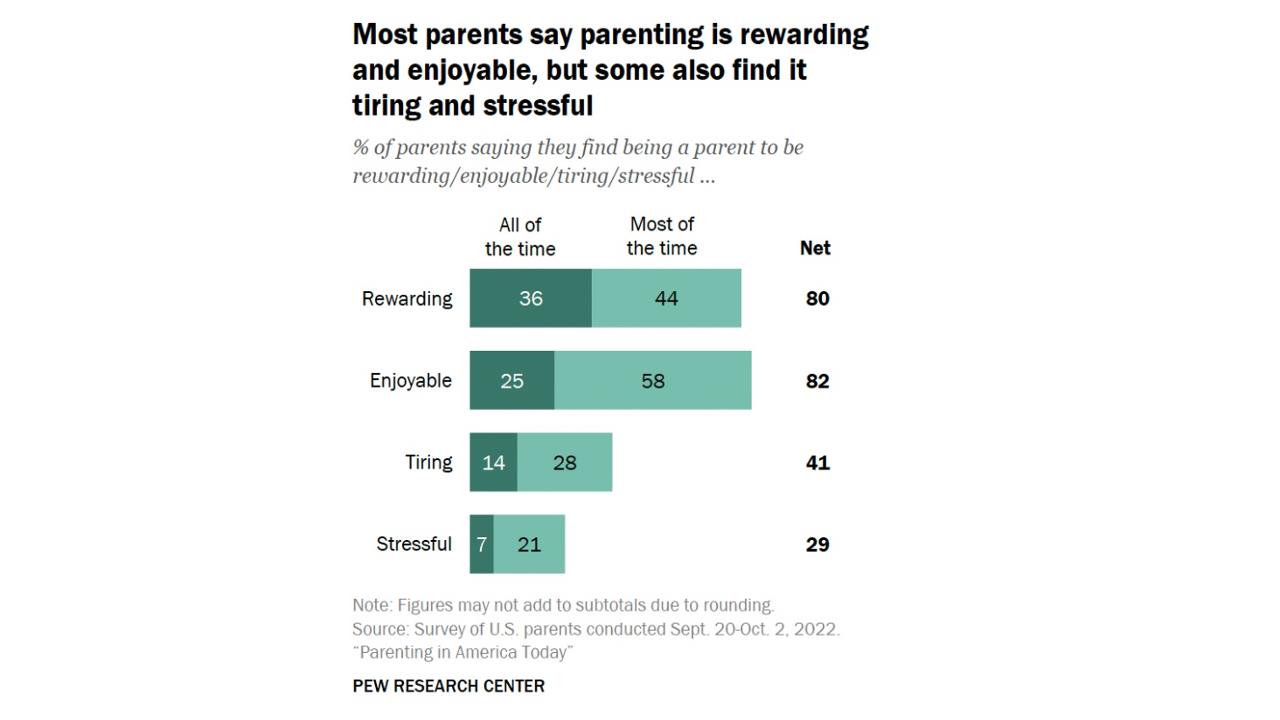Video:
Take our online poll:
AI Analysis:
Being a good parent involves a combination of qualities, skills, and behaviors that contribute to the well-being and development of a child. Here are some attributes that are commonly associated with good parenting:
1) Unconditional Love: Providing a child with a secure and loving environment is fundamental. Unconditional love fosters emotional well-being and helps children build healthy relationships.
2) Patience: Parenting requires patience, as children may test boundaries, make mistakes, or progress at their own pace. Patient responses help create a supportive and nurturing atmosphere.
3) Effective Communication: Being able to communicate with children in a way that is age-appropriate and supportive is crucial. Open and honest communication helps build trust and understanding.
4) Consistency: Consistency in rules, expectations, and routines helps children feel secure. It provides a sense of structure that is important for their emotional and psychological development.
5) Empathy: Understanding and acknowledging a child's feelings and perspectives fosters empathy. It helps children feel heard and validated, contributing to their emotional intelligence.
6) Adaptability: Parenting involves adapting to the changing needs of a child at different stages of development. Being flexible and open to adjustments in parenting strategies is essential.
7) Setting Boundaries: Establishing clear and reasonable boundaries helps children understand expectations and provides a sense of security. Consistent enforcement of boundaries is crucial for effective discipline.
8) Positive Role Modeling: Parents serve as powerful role models for their children. Demonstrating positive behaviors, values, and coping mechanisms helps shape a child's character.
9) Encouragement and Support: Providing encouragement and support, especially during challenging times, helps build a child's self-esteem and confidence. Celebrating achievements, no matter how small, is important.
10) Active Involvement: Being actively involved in a child's life, including attending events, participating in activities, and showing interest in their interests, strengthens the parent-child bond.
11) Respect for Individuality: Recognizing and respecting a child's individuality, including their unique personality, interests, and talents, fosters a sense of identity and self-worth.
12) Teaching Responsibility: Encouraging age-appropriate responsibilities helps children develop a sense of accountability and competence. It prepares them for independence and adulthood.
13) Staying Informed: Being informed about child development, parenting strategies, and relevant issues helps parents make informed decisions and adapt their approaches as needed.
14) Emotional Regulation: Modeling healthy emotional regulation and providing guidance on managing emotions helps children develop their emotional intelligence.
15) Prioritizing Quality Time: Spending quality time with a child, engaging in activities, and creating positive memories contribute to a strong parent-child relationship.
It's important to recognize that parenting is a dynamic and evolving process, and no one is a perfect parent. The key is to continually learn, adapt, and prioritize the well-being of the child. Parenting styles can vary, but a foundation of love, support, and positive guidance tends to contribute to healthy child development.
Chart:

References:


Comments